|
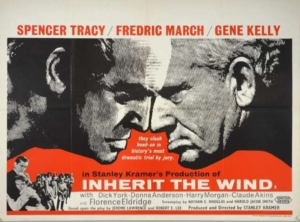
Synopsis:
When a teacher (Dick York) in 1925 small-town Tennessee is put on trial for teaching Darwin’s theory of evolution rather than Creationism, he’s defended by agnostic Henry Drummond (Spencer Tracy), prosecuted by Bible-thumper Matthew Brady (Fredric March), covered in a media spectacle by cynical journalist E.K. Hornbeck (Gene Kelly), and supported by his loving but concerned fiancee (Donna Anderson), whose preacher-father (Claude Akins) is the town’s most vocal opponent of Darwinian theory.
|
|
Genres, Themes, Actors, and Directors:
- Courtroom Drama
- Deep South
- Fredric March Films
- Gene Kelly Films
- Lawyers
- Media Spectacle
- Play Adaptation
- Rivalry
- Small Town America
- Spencer Tracy Films
- Stanley Kramer Films
Review:
Director-producer Stanley Kramer helmed this adaptation of Jerome Lawrence and Robert E. Lee’s 1955 Broadway play, based on the infamous Scopes Monkey Trial. Details and names have been changed — see Tim Dirk’s FilmSite review for an extensive analysis — but the essence of the storyline has been retained, while focusing primarily on the drama of two powerful men butting heads on stage (literally so, as shown in this poster). The theme of highly religious citizens defying the incorporation of science and reason into their lives is (sadly) as relevant as ever (it’s odd how pertinent this tale remains nearly 100 years later), as is the notion of the media seizing on a high-emotion battle between two opposing personalities (presidential elections, anyone?). Unfortunately, the fictional inclusion of a conflicted fiancee for York adds unnecessary drama to what was already a powerful enough courtroom tale, and Kelly seems miscast (one expects him to break into song and dance at any moment) — but the film remains worth a one-time look for the noteworthy lead performances and the intrinsic drama of science “versus” faith.
Note: Kramer made a number of “message pictures” right around this time — including The Defiant Ones (1958), On the Beach (1959), Judgment at Nuremberg (1961), and Guess Who’s Coming to Dinner (1968) — and this fits right into that category.
Redeeming Qualities and Moments:
- Spencer Tracy as Henry Drummond
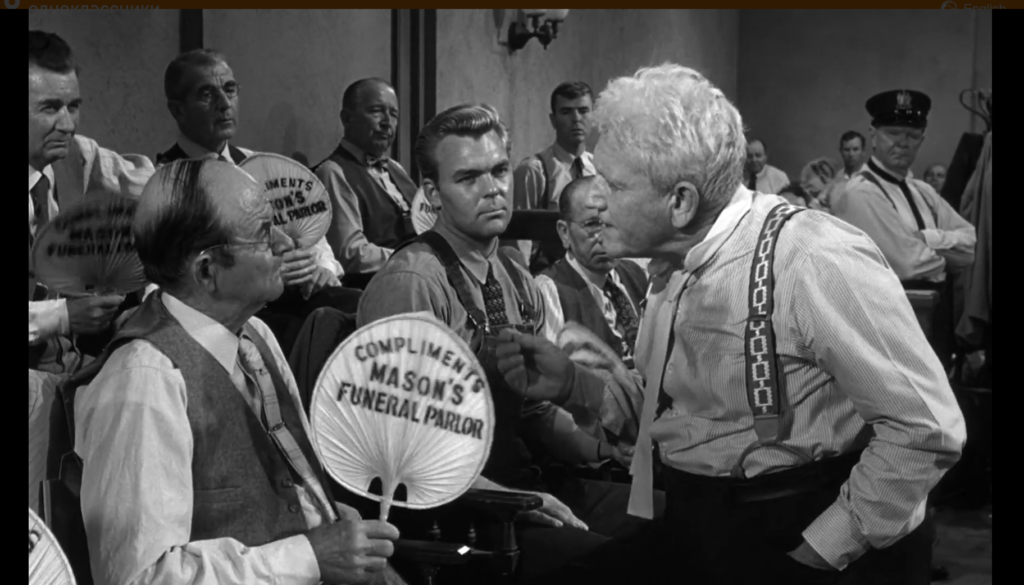
- Fredric March as Matthew Brady
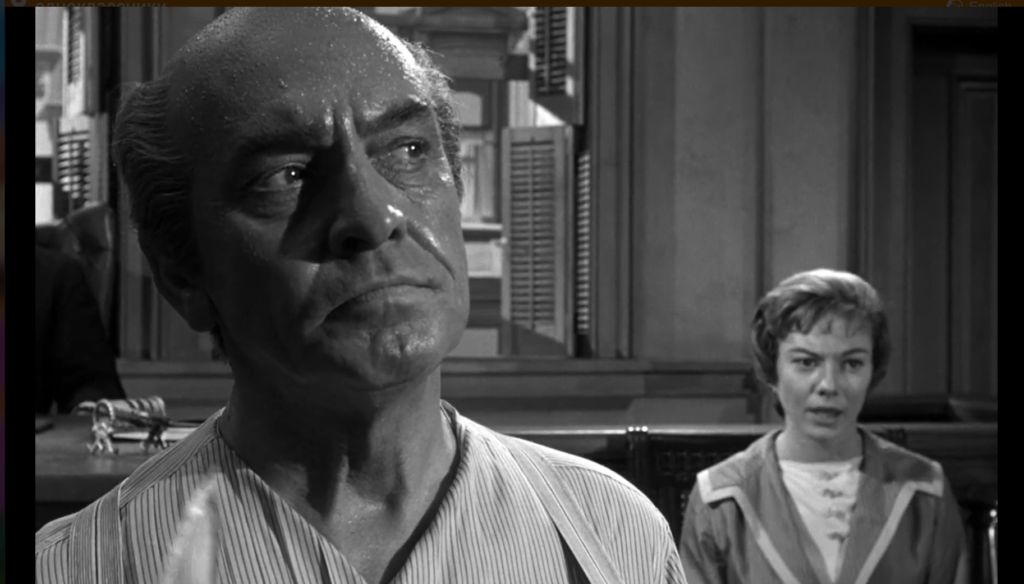
- Fine cinematography and direction
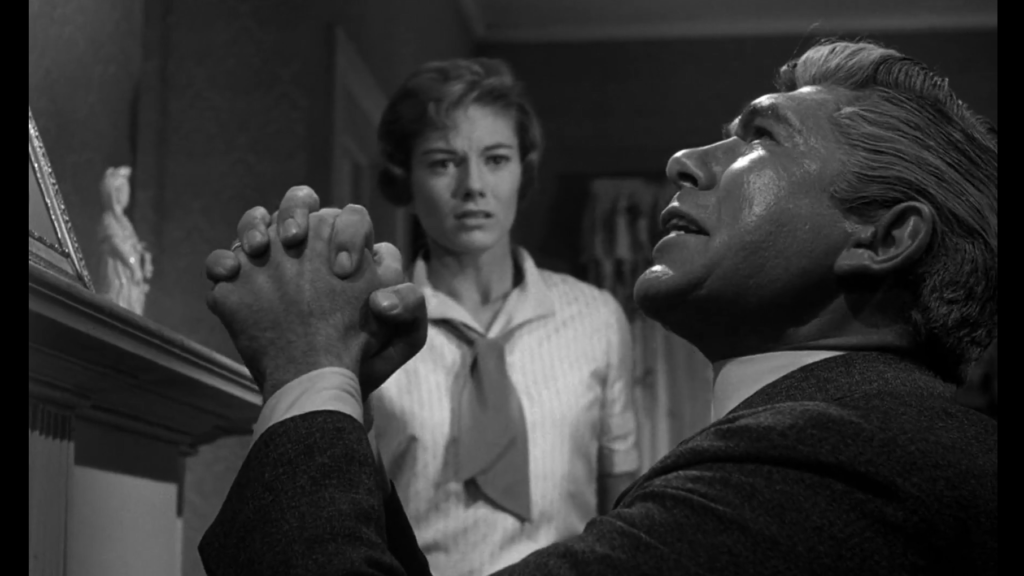
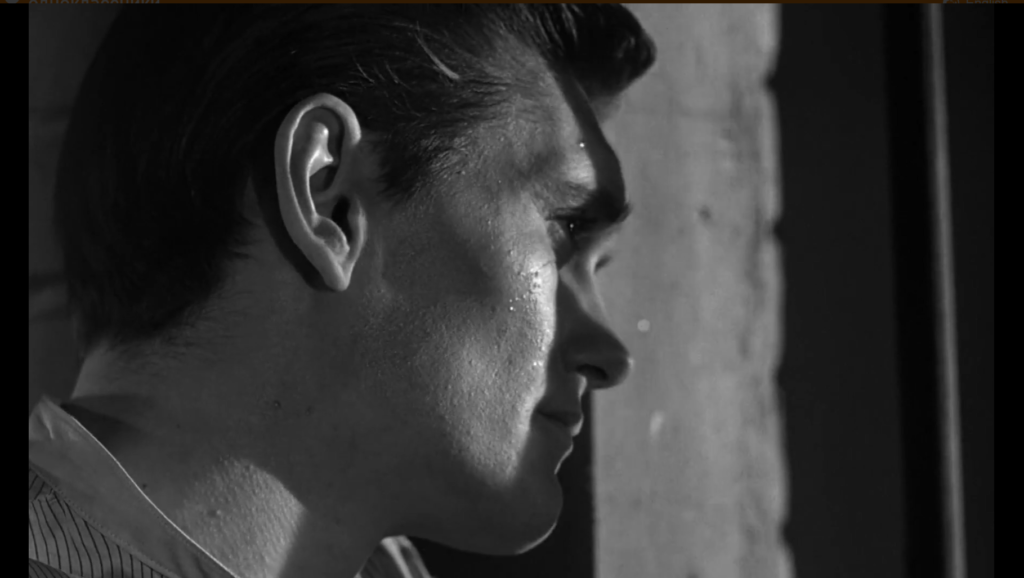
Must See?
No, but it’s recommended for one-time viewing. Listed as a film with Historical Importance in the back of Peary’s book.
Links:
|





One thought on “Inherit the Wind (1960)”
A once-must for its subject matter – and for Tracy and March’s performances. As per my post in ‘The ’40s-’50s in Film’ (fb):
“Whatever happened to silent prayer?”
‘Inherit the Wind’ (1960): ’50s-cusp flicks like this one often hold a particular fascination for me – in the way they can seem to be saying goodbye to a past decade and hello to the new one. ‘ITW’ is a perfect example of this, in that it blends an old-fashioned stodginess of mind with a rebellious spirit that embraces the scope of progressive ideas.
Based on the 1925 Scopes Monkey Trial against the teaching of Darwin’s theory of evolution being taught in Tennessee, Stanley Kramer’s film of the successful Broadway play takes the same license (i.e., inventing additional characters, depicting a lynch-mob, etc.) with what was reportedly a rather dull trial overall… that is, until (as actually happened) defense attorney ‘Drummond’ (Spencer Tracy) called prosecutor ‘Brady’ (Frederic March) as a defense witness. Standing in for Clarence Darrow and William Jennings Bryan, Tracy and March participate here in an allegory which (like Arthur Miller’s ‘The Crucible’) was an illustration of the destructive power of McCarthyism.
As a result, ‘ITW’ is less about whether Darwin was right or wrong than about man’s inherent right to think; intellectual thought may not necessarily be correct, but it’s not a crime. Along those lines, it’s a fun moment when Gene Kelly’s jaded journalist character (based on H.L. Mencken) tells Tracy that the main problem with Darwin’s theory is that men are still apes. (Kelly’s performance is the only one in the film which occasionally seems off-tone; partially because Kelly tends to imbue the role with a musical comedy touch and partially because the role is heavily written that way.)
I happen to like courtroom dramas – especially when they’ve got a genuine punch to them… and this one has a real kick. It becomes particularly potent when, on the stand, March is asked by Tracy whether or not he’s familiar with Darwin’s book – and March says he’s never read it. It’s a neat trick to cause considerable public uproar against something you’ve never read or attempted to understand.